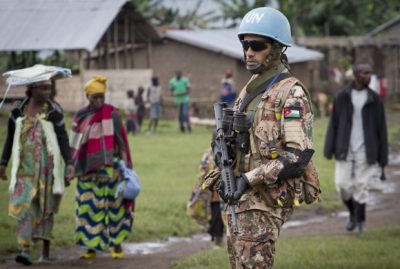By
Darell Maurice
The United Nations Security Council on Friday adopted their first ever resolution condemning sexual abuses by peacekeepers, a recurring and particularly acute problem in the Central African Republic and Democratic Republic of Congo.
The resolution proposed by the United States, the first of its kind, plans to repatriate whole contingents of peacekeepers in cases of suspected sexual abuse or sexual exploitation.
If a country does not take action against its offending soldiers, it will even be removed from peacekeeping operations.
The vote was acquired by 14 votes in favour and one abstention (Egypt), after the rejection by the Council of an Egyptian amendment that would have watered down the text.
The US resolution was immediately met with reservations from several countries including Russia, Egypt and Senegal.
Egypt has objected that the resolution imposes “collective punishment” for the crimes committed by “dozens of bad apples.”
Such an approach may have “a serious impact on staff morale and tarnish the reputation” of countries contributing peacekeepers, warned the Egyptian ambassador Amr Abdellatif Aboulatta.
Four countries (Angola, Russia, China and Venezuela) had supported his amendment before finally rallying to the American text.
The difficult Council vote on an amendment is a rare procedure. The Egyptian amendment “would have undermined the objective of this resolution,” said US Ambassador Samantha Power.
It is, Samantha Power recalled, to “finally tackle the cancer of abuse and sexual exploitation, which affects people who have trusted the UN flag.”
But for the Russian Deputy Ambassador Petr Iliichev, “you must listen to the voices of the contributors (peacekeepers) and not draw the Council against these countries.” Russia also believes that this problem is not within the Commission’s jurisdiction.
There are a total of 69 cases of sexual abuse allegedly committed by peacekeepers in 2015 in ten peacekeeping missions according to the latest annual report of Secretary General Ban Ki-moon. “A net increase” compared to 2014 (52 cases). Twenty one countries of soldiers or police are involved, led by the DRC (7 cases), Morocco and South Africa (4 cases), mostly in CAR (MINUSCA) and the Democratic Republic of Congo (MONUSCO). Since the beginning of the year, 26 new charges have been recorded.



No Comments Yet!
You can be first to comment this post!